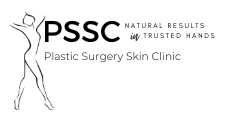Aging skin is one of the most visible physical signs of aging. The more we can prevent wrinkles, the easier it will be for us to ensure that our skin looks and stays radiant.
The key to younger-looking skin lies in our daily habits.
But there are some things we just can’t change. Think of these as interior and exterior factors. Interior factors are the biological processes that contribute to aging skin. No matter what we do, our skin will always begin to dry out, wrinkle, and get thinner as we age.
Exterior factors are more within our control. This includes what we eat, what we put on our skin, and how we spend our time.
We’ve designed a quiz to introduce you to some of these habits.
As you go through these, add one point to your total for every bad habit you practice on a regular basis.
Then, add up your points. The more points you have, the more likely it is that your skin will show visible signs of age faster.
Habits that Contribute to Aging Skin
Smoking
The nicotine in cigarettes has a huge impact on the overall look of our skin. It narrows the blood vessels within the top layer of our skin, decreasing its access to oxygen and other important nutrients that keep skin healthy. The longer you smoke, the worse the damage will be.
Tanning
Many people who want that sun-kissed glow without going into the sun rely on indoor tanning beds instead.
However, regular exposure to this intense UV light has been estimated to increase a person’s risk for melanomas by a whopping 75%. This UV light also increases DNA mutations that cause visible signs of aging like wrinkles and discoloration.
Lack of Sun Protection
Do you go out into the sun often without sunscreen, sun-protective clothing, or sunglasses?
If so, you’re putting yourself at intense risk for skin cancer, which also increases DNA mutations that cause visible signs of aging.
Bad sun protection habits also include spending long periods of time in the sun and repeated sunburns.
Eating Unhealthy, Processed Foods
Eating lots of sugary, processed food can also put us at risk for premature skin aging.
That’s because the delicious combination of protein, fat, and sugar creates what’s known as a glycation end product when digested together.
Once they make their way into our body, these products promote oxidative stress and inflammation, which alters the normal functioning of our healthy cells.
Drinking Alcohol and Caffeine
As our body digests alcohol, it creates a byproduct called acetaldehyde, which contributes to the dehydration of our skin and tissues. Caffeine behaves in a similar way, but instead of creating a dehydrating byproduct, it acts as a diuretic, robbing our body of moisture. Both of these types of beverages dehydrate skin, and when consumed regularly lead to prematurely aged skin.
Symptoms of Aging Skin
Use the different categories below to evaluate whether your skin has started prematurely aging.
If you have any of the following symptoms, you may want to see a dermatologist, and start exploring some of your options for improving the look, tone, and texture of your skin.
- Freckles
- Lined, Wrinkled Skin
- Dull Tones, such as age spots and discoloration
- Fighting a constant battle against skin dryness and saggy skin
What You Can Do to Combat Signs of Aging
If you got any points on the quiz above, you should definitely look into improving your skincare habits.
No one’s skin is perfect, and it’s very normal to have visible marks that make you unique. However, when you start to see lines appearing, or your skin becomes dull, lifeless, and dry, you know it’s time to take action. Here are some ways that you can combat visible signs of aging.
Remove Age Spots
Studies done by Proctor and Gamble suggest that age spots can make a woman look 20 years older than her actual age.
They typically appear as black, brown, or grey marks on the skin. These discolorations are typically a result of sun exposure.
These spots can be treated easily by a trained plastic surgeon. Depending on their intensity and number, your doctor may suggest a chemical peel, dermabrasion, or a type of pulsed light treatment.
FMR & Dermal Fillers
Fractionated Microneedle Radiofrequency (FMR) and dermal filler treatments are both great options for helping to improve the appearance of skin without surgery. FMR treatments use tiny needles to apply controlled heat, which smooths the appearance of skin, and may be able to help minimize acne scars and even stretch marks.
Dermal fillers, like Juvederm® and Restylane®, are injected carefully under the skin. This helps to improve visible signs of aging by smoothing wrinkles and restoring a plump, contoured appearance.
Skin Rejuvenation
There are a variety of methods for overall skin rejuvenation. This includes the Fractora laser and the Halo hybrid fractional laser.
Each of these treatments uses a laser to smooth the surface of the skin while encouraging the growth of new collagen underneath the surface.
These laser treatments are a great choice for long-term care, as they work on two levels:
- Improving visible symptoms like acne scars and discoloration.
- Stimulating collagen growth to smooth out wrinkles and sagging skin.
Choosing the Right Clinic for Skin Rejuvenation in Newmarket
Having gone through our quiz, you might be feeling signs of premature aging potentially lying in wait for you in the future.
Rest assured, there are always steps you can take to reverse these skin issues if they occur. A healthy diet and good skincare habits are a great place to start.
If you’re keeping up with a healthy diet and a good skincare regime, but still aren’t seeing the progress or results you’d like, contact a specialist at the Plastic Surgery Skin Clinic in Newmarket. We can help you figure out the best plan for keeping your skin looking young and healthy long-term.
Contact us today to talk to one of our expert plastic surgeons, and schedule your first appointment.

